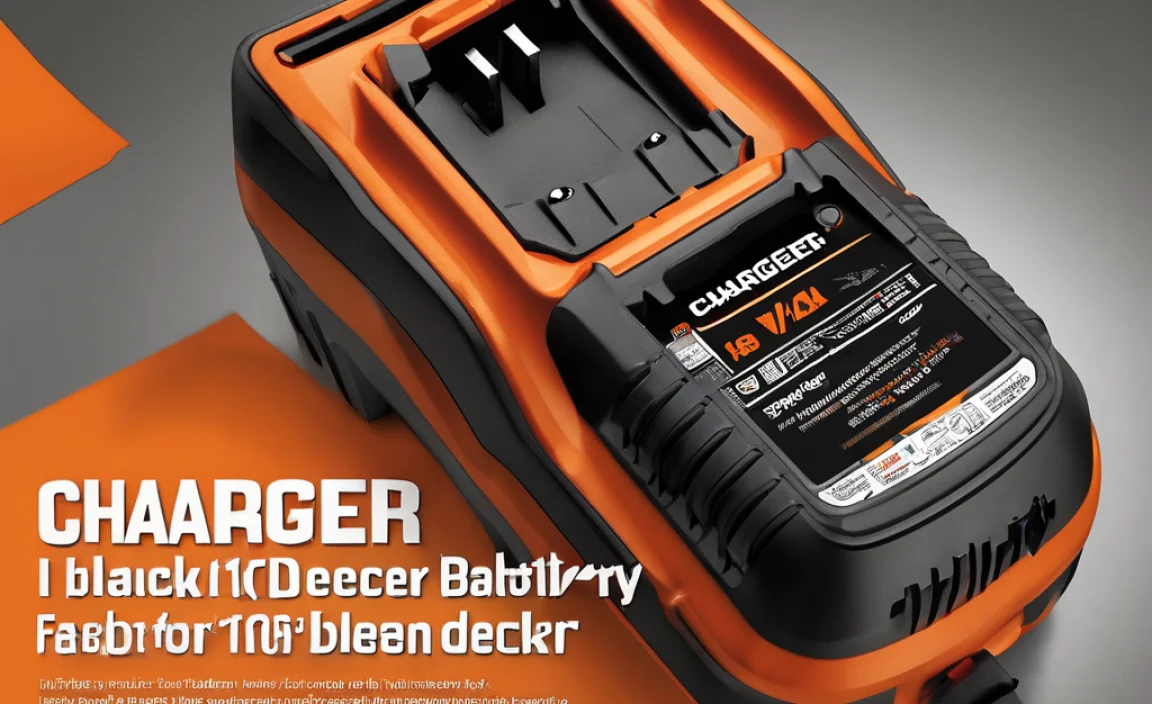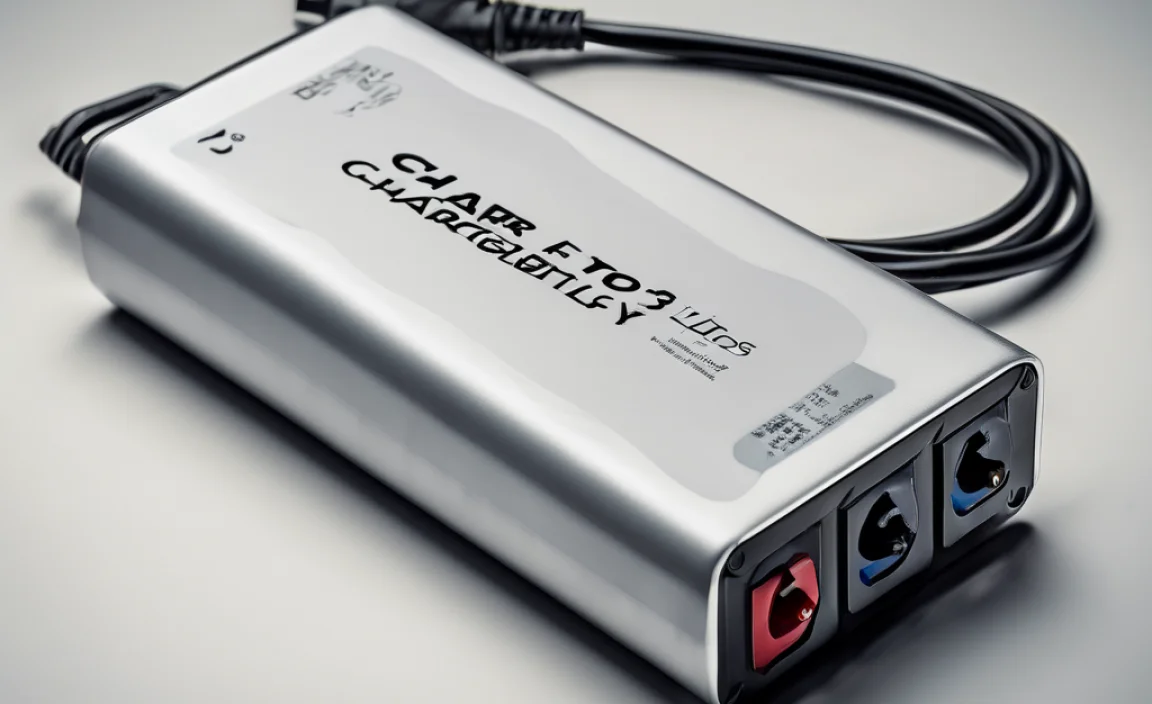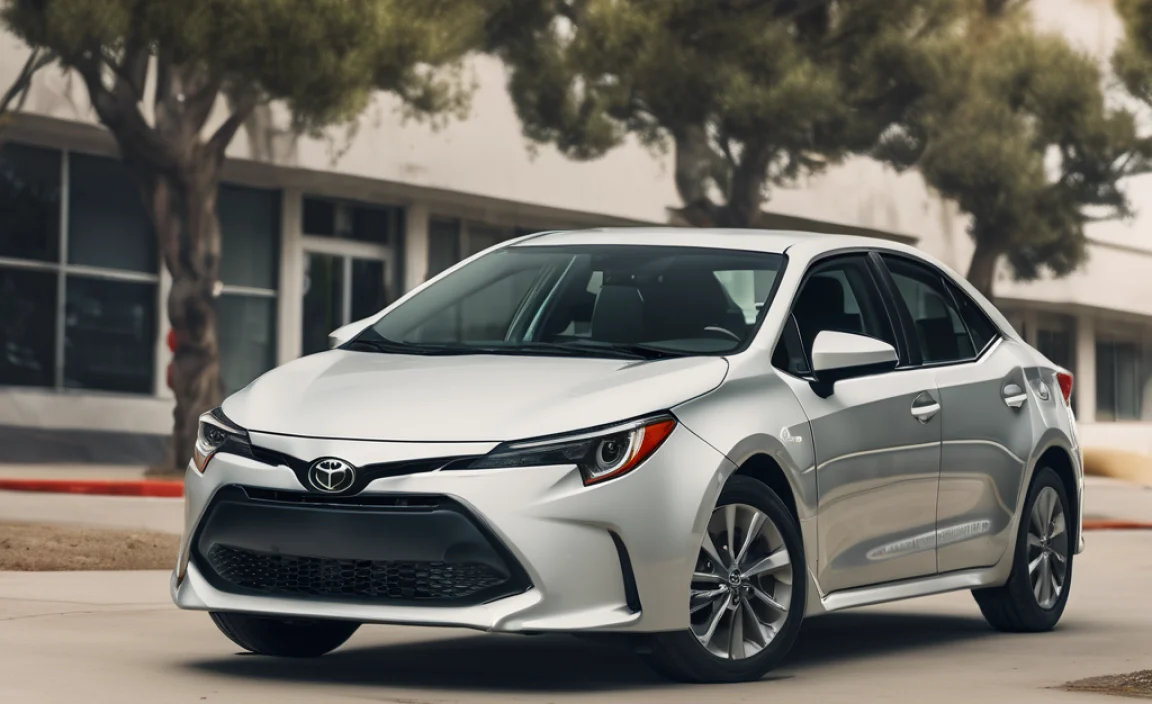Quick Summary: Yes, you can earn cash for junk batteries! Many local recycling centers, auto shops, and scrap metal dealers pay for old car batteries. It’s an eco-friendly way to clear out old batteries from your garage and put a little money in your pocket. Find out where and how to get the best price.
Got a dead car battery sitting around? Don’t just let it collect dust or worse, toss it thinking it’s worthless. That old battery might actually be worth something! Many people don’t realize that old lead-acid car batteries are highly recyclable and have a definite value. You can turn that hunk of metal and plastic into a little extra cash while doing a good deed for the environment.
This guide is all about helping you understand how to get paid for your junk batteries. We’ll walk you through where to take them, what to expect, and how to make sure you’re getting a fair deal. It’s simpler than you might think, and it’s a practical way to get rid of something you don’t need anymore.
Why Selling Old Batteries Makes Sense
Old batteries are more than just waste; they’re also a valuable resource. The main component in most car batteries is lead, which is a heavy metal that can be melted down and reused. Recycling it prevents this potentially harmful material from ending up in landfills, where it can leach into the soil and water. Plus, recovering lead from old batteries is much more energy-efficient than mining and processing new lead.
Beyond the environmental benefits, there’s also the financial incentive. Because lead is so valuable, businesses that process these batteries are willing to pay for them. This creates a market for your old car batteries, turning what you might consider trash into treasure.
Where Can You Actually Get Cash for Junk Batteries?
Finding a buyer for your old car battery is usually straightforward, as many places deal with them regularly. Here are the most common places to look:
1. Auto Parts Stores
Many national and local auto parts retailers offer a core charge on new batteries. When you buy a new one, you’ll pay a small fee upfront. When you return your old battery, you get that fee back. Some stores will even give you a small amount of cash for your old battery on top of refunding the core charge, especially if you don’t buy a new one from them. Some well-known chains that often accept old batteries include:
- Advance Auto Parts
- AutoZone
- O’Reilly Auto Parts
- NAPA Auto Parts
It’s always a good idea to call your local store first to confirm their policy on buying or accepting old batteries.
2. Scrap Metal Dealers and Yards
Scrap yards are businesses that buy and process various types of metal for recycling. Old car batteries are a common item they accept because of their lead content. Prices can vary depending on the going rate for lead and the specific yard. These places are often the most common and convenient for selling batteries, especially if you have several. You can search online for “scrap metal dealers near me” or “scrap yards near me” to find options in your area.
3. Battery Specialists and Recyclers
Some companies specialize in battery recycling or distribution. They often have established programs to collect and process large volumes of old batteries. These might be smaller, regional businesses, and finding them might require a bit more targeted searching. Look for businesses that advertise battery recycling services in your community.
4. Local Mechanics and Service Centers
Many independent auto repair shops and dealerships will take old batteries off your hands, especially if they install new ones regularly. They often have relationships with recyclers and may be able to offer you a small amount for your battery. It never hurts to ask your trusted mechanic if they accept old batteries.
5. Hazardous Waste and Recycling Centers
Some municipal or county hazardous waste collection sites accept old car batteries. While they might not always pay you cash, they ensure proper and safe disposal, which is a valuable service. Check your local government’s waste management website for information on battery drop-off locations. These facilities are committed to environmentally sound practices, helping to keep hazardous materials out of landfills.
What Kind of Batteries Can You Sell for Cash?
When people talk about “cash for junk batteries,” they almost always mean the standard 12-volt lead-acid batteries found in most cars, trucks, and SUVs. These are the most common type and the ones that have a consistent recycling market.
Other types of batteries, like those from portable electronics (phones, laptops) or rechargeable power banks, are generally not accepted by the same places that buy car batteries. These smaller batteries often contain different chemistries (like lithium-ion) and require specialized recycling processes, which usually don’t involve direct cash payment to consumers. It’s important to know that while your old car battery has cash value, your old phone battery likely does not in the same way.
Here’s a quick look at common battery types and their typical cash potential:
| Battery Type | Primary Use | Cash Potential (for typical consumer) | Where to Recycle/Sell |
|---|---|---|---|
| Lead-Acid Car Battery (12V) | Starting, Lighting, Ignition (SLI) for vehicles | Varies ($5 – $15 typically) | Auto parts stores, scrap yards, battery specialists, some mechanics |
| Lithium-ion Battery (e.g., phone, laptop, power bank) | Portable electronics, energy storage | Generally none for individuals; specialized recycling | Electronics retailers with take-back programs, hazardous waste sites |
| Alkaline Batteries (e.g., AA, AAA) | Household electronics | None; usually not accepted for recycling by scrap dealers | Hazardous waste sites, some community recycling events |
The value of a lead-acid car battery is primarily driven by its lead content. This is why scrap yards weigh them and pay by the pound or for the entire unit.
How Much Cash Can You Expect?
The amount of money you’ll get for a junk car battery isn’t a fixed price. It depends on several factors:
- The price of lead: This is the biggest driver. Lead prices fluctuate based on global markets.
- Weight of the battery: Heavier batteries generally mean more lead and therefore more value. Standard car batteries weigh between 30-50 pounds.
- The buyer’s pricing: Different scrap yards or stores will have their own rates.
- Condition: While it’s a “junk” battery, severely damaged casings or missing components might slightly reduce the price.
As a general rule of thumb, you can usually expect to get anywhere from $5 to $15 for a standard car battery. Some places might offer slightly more, especially if they are running a special or if lead prices are exceptionally high. It’s important to manage expectations; you’re not going to get rich, but it’s a nice bonus for something you need to get rid of anyway.
How to Prepare Your Battery for Sale
Selling your old car battery is usually a simple process, but a little preparation can make it smoother and ensure you get the best reception (and price) from the buyer.
Safety First!
Car batteries contain sulfuric acid, which is corrosive, and they can release flammable hydrogen gas. Always handle them with care.
- Wear protective gear: Always wear gloves and eye protection when handling a car battery.
- Handle with care: Car batteries are heavy. Lift with your legs, not your back. Consider asking for help if you’re not used to lifting heavy objects.
- Keep it upright: Try to keep the battery as upright as possible to prevent any acid leakage.
- Avoid sparks: Do not smoke or create sparks near the battery.
Cleaning and Transport
You don’t need to deep clean a battery, but a quick tidy-up can be helpful:
- Wipe it down: Use a damp cloth to wipe off any loose dirt or corrosion from the outside. This makes it cleaner and less messy to transport.
- Secure it: When transporting, place the battery in a sturdy plastic bag or container to catch any potential leaks. Most people put it in the trunk of their car.
- Remove from vehicle: Make sure the battery is completely out of your car and cooled down.
Most buyers want the battery as-is. You typically don’t need to remove terminals or do anything complex. They are equipped to handle them.
The Step-by-Step Process to Earning Cash
Ready to turn that old battery into some cash? Here’s how to do it:
- Identify the Battery: First, confirm you have a standard 12-volt lead-acid car battery. These are the ones that most recyclers are interested in for their lead content.
- Gather Your Batteries (if applicable): If you have more than one old battery lying around, gather them up. More batteries mean potentially more cash.
- Prioritize Safety: Before handling, put on gloves and eye protection. Remember batteries are heavy and contain acid.
- Clean Up (Optional but Recommended): Give the outside of the battery a quick wipe-down. Place it in a sturdy bag or container for transport.
- Research Local Buyers: Use online search terms like “cash for junk batteries near me,” “scrap metal recycling [your city],” or “auto parts store battery recycling.”
- Call Ahead: Before you head out, call a few potential buyers. Ask them:
- Do you buy old car batteries?
- How much do you typically pay per battery? (They might give you a range or tell you it depends on weight/lead prices).
- What are your operating hours?
- Do you have any specific requirements for the battery (e.g., must have terminals connected)?
- Transport Safely: Load the battery carefully into your vehicle, ensuring it stays upright. Place it in a secure spot where it won’t tip over.
- Make the Sale: Drive to the buyer. They will likely inspect the battery, weigh it, and then offer you cash.
- Get Your Paperwork (if applicable): For larger amounts or at certain dealers, they might ask for some identification, especially if they are a licensed scrap metal dealer. This is often for tracking purposes.
Following these steps makes sure the process is efficient, safe, and profitable.
How to Find the Best Prices
To maximize the cash you get for your junk batteries, a little comparison shopping goes a long way. Here are some tips:
- Call Multiple Places: Don’t just go to the first place you find. Call 2-3 different buyers (scrap yards, auto parts stores) and compare their offers. Prices can vary significantly.
- Ask About Lead Prices: At scrap yards, you can sometimes ask what the current price for lead is as a reference point for your battery’s value.
- Check Online Forums and Local Groups: Sometimes local community groups or online forums discuss where to get the best prices for scrap metal or car parts.
- Consider Bulk: If you have multiple batteries from yourself, friends, or family, selling them together might yield a better per-battery price from some buyers.
- Timing Matters: While not easily controllable for a single battery, if you’re involved in larger-scale recycling, knowing when lead prices are high can be beneficial.
When comparing prices, also consider convenience. A slightly lower price might be worth it if the buyer is much closer or easier to get to.
Environmental Responsibility: Why Recycling Matters
Beyond the cash, there’s a significant environmental benefit to recycling your old car battery. Lead-acid batteries are considered hazardous waste. If they end up in a landfill, the lead and sulfuric acid can leak out, contaminating soil and groundwater. This can have serious long-term effects on ecosystems and human health.
The Environmental Protection Agency (EPA) highlights the importance of battery recycling on its website, noting that effective recycling programs divert these hazardous materials from landfills and allow valuable components like lead and plastic to be reused. According to the EPA, battery recycling is a critical part of managing waste and conserving resources. You can learn more about battery recycling best practices on the EPA’s recycling common materials page.
By taking your old battery to a facility that recycles them, you’re participating in a circular economy. The lead from your old battery can be reprocessed and used to make new batteries, reducing the need for mining new lead, which is an energy-intensive and environmentally impactful process. You’re essentially helping to close the loop on battery production and disposal.
Common Misconceptions About Junk Batteries
There are a few common myths surrounding old car batteries that might make people hesitant to sell them. Let’s clear a few up:
- “They’re worthless.” As we’ve discussed, the lead content alone gives them significant value in the recycling market.
- “They’re too dangerous to handle.” While they do require caution due to corrosive acid and potential for explosive gases, most people can handle them safely with basic personal protective equipment (PPE) and by following simple safety guidelines like keeping them upright and away from sparks.
- “Only special places buy them.” While some specialized recyclers exist, common places like auto parts stores and scrap yards are readily available and make the process easy.
- “They have to be working batteries.” The term “junk battery” implies they are no longer functional. Buyers are specifically looking for the materials within them for recycling, regardless of their working condition.
Understanding these facts helps demystify the process and encourages more people to get paid for their old batteries.
FAQs About Cash for Junk Batteries
Q1: How much is an old car battery worth today?
A1: The value of an old car battery typically ranges from $5 to $15. This price depends heavily on the current market price of lead, the battery’s weight, and the specific buyer’s pricing structure.
Q2: Can I get cash for batteries other than car batteries?
A2: Generally, no. The cash-for-batteries market primarily applies to 12-volt lead-acid car batteries due to their valuable lead content. Other types like lithium-ion (from phones, laptops) or alkaline batteries require specialized recycling and usually don’t offer direct cash payment to consumers.
Q3: Do I need to drain the acid from the battery before selling it?
A3: Absolutely not! Do not attempt to drain the acid. The sulfuric acid is a key component that buyers expect to be present. Attempting to drain it is dangerous and will not increase the value or acceptance of the battery.
Q4: Where is the best place to sell a junk car battery?
A4: Scrap metal yards and major auto parts stores are usually the best places to sell junk car batteries. It’s advisable to call a few different locations in your area to compare prices and policies.
Q5: What safety precautions should I take when handling an old car battery?
A5: Always wear safety glasses and gloves. Batteries are heavy, so lift with your legs. Keep the battery upright to prevent leaks and avoid creating sparks or flames near it, as batteries can produce flammable hydrogen gas.
Q6: Can I get cash for a battery that is broken or cracked?
A6: Most buyers will still accept a cracked or broken battery as long as it is a standard lead-acid type and not leaking excessively. However, severe damage might slightly reduce the price offered.
Q7: Do I get money back if I just bring my old battery to an auto parts store when buying a new one?
A7: Yes, when you purchase a new car battery from most auto parts stores, you pay a “core charge” deposit. Returning your old battery allows you to get this core charge back. Some stores may offer a small additional amount of cash, or you might get the core charge as store credit.
Conclusion
Turning your old, dead car battery into cash is a straightforward process with multiple benefits. Not only do you clear out space in your garage and put a little money in your pocket, but you also contribute to a crucial environmental recycling effort. By understanding where to take your battery, what to expect in terms of value, and how to handle it safely, you can easily participate in this rewarding practice. So, next time you have a junk battery, remember it’s not just waste – it’s an opportunity. A quick call to a local scrap yard or auto parts store is all it takes to find out how much cash you can earn for your old lead-acid battery.



